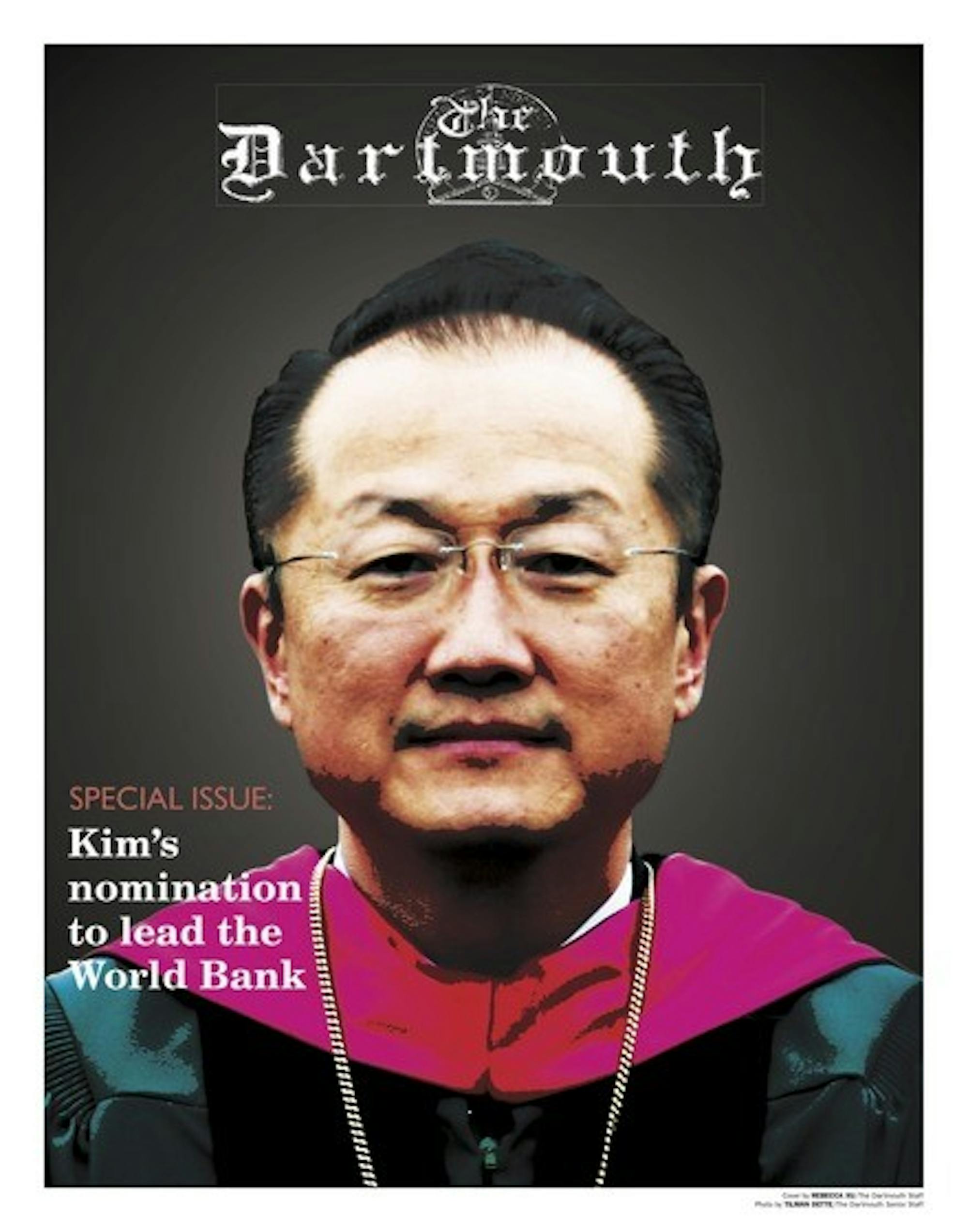"At this point in time, the guy's been here only three years, two of which were taken up by something that made it impossible for him to have any impact," former history professor and unofficial College historian Jere Daniell '55 said, referring to the College's $100-million budget deficit that Kim was tasked with eliminating. "The idea of comparing Kim to any other president is silly."
Joseph Helble, dean of the Thayer School and a member of the presidential search committee that selected Kim in 2009, also said Kim's first 18 months in office were necessarily dominated by financial challenges rather than getting to know the College.
"Every presidency is different, and it depends on the times the individual is president," Helble said.
The committee naturally hoped Kim's tenure at the College would be a long one, according to Helble.
Kim's Chief of Staff David Spalding '76 said that prior to Obama's announcement, he expected Kim to serve "what was considered to be a full term by a president in the Ivy League, which is 10 years."
Former College President James Wright said in an email to The Dartmouth that he was surprised and "disappointed" by the news of Kim's nomination.
"Susan Wright and I were pleased to have him and Dr. Younsook Lim and their sons living at One Tuck Drive and had hoped to have him there for many years," Wright said.
College biology professor and Dartmouth Medical School professor Lee Witters said that coming from outside the College meant that Kim had a fresh perspective on Dartmouth.
"[Kim has] brought a lot of momentum into the institution and a lot of strong people," Witters said. "That's different from Wright. Wright was like a train already running along a track."
Witters cited the strategic planning process, the new Center for Health Care Delivery Science and the open discussion of campus issues such as binge drinking and hazing as examples of the momentum brought by the Kim administration.
"An institution can get too inbred that's not good for an institution or for genetics," Witters said. "But you do want someone to be around for a while."
The next president will have the power to alter the current administrative structure instituted by Kim, who created the chief of staff position held by Spalding and brought in Steve Kadish as executive vice president and chief financial officer, Linda Snyder as vice president for campus planning and facilities, Harry Sheehy as athletic director and Charlotte Johnson as dean of the College, according to Spalding.
"This was a structure that President Kim put a lot of thought into that makes a lot of sense for the College," Spalding said, adding that its continuation will be at the discretion of the next president.
"I personally serve at the pleasure of the president and at the pleasure of the College, and I would hope that I'd continue to be able to play a role here going forward."
Administrative structure is altered to support the operation style of the current president, according to Helble, who said he "would expect some things may well change."
Daniell noted a change in the length of presidential tenure from what he called the three "architectural" presidents William Jewett Tucker, Ernest Martin Hopkins and John Sloan Dickey, who served 16, 29 and 25 years, respectively to John Kemeny and his successors.
The trend in decreasing presidential term length, which has not been unique to Dartmouth, meant that presidential recruitment has focused on the short-term needs of the College rather than selecting candidates "expected to be architects of what the institution was going to become over a quarter of a century," Daniell said.
"Kemeny announced when he accepted that he would stay at least 10 years and not more than 15," Daniell said. "Ten to 15 became the assumed framework."
Spalding cited consulting firm Booz Allen Hamilton's 2004 inclusion of Dartmouth as one of the world's 10 most enduring institutions, among which Oxford University was the only other institution of higher learning named, as an example of Dartmouth's continuing positive energy over the long term.
The Board of Trustees sees long-term vision as important to the College, Spalding said.
Kim's departure is not cause for undue alarm regarding the future of the College, according to Spalding, Witters, Helble and Daniell.
"It isn't as though presidents are that important anymore," Daniell said. "The College is going to keep on going. [Kim leaving] isn't going to change anything."
The College is as defined by its students, both graduate and undergraduate, as it is by its administrators, according to Spalding.
"The president is an important member of the team, but not the only member of the team," he said.
The shortest term held by a College president was that of Daniel Dana, who resigned after only a year in 1821, having suffered a nervous breakdown due to the stress of the job.




